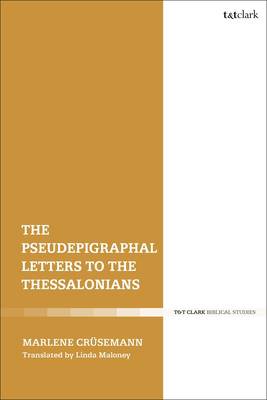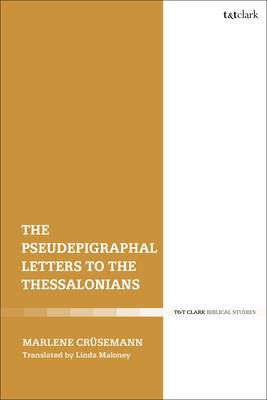
En raison d'une grêve chez bpost, votre commande pourrait être retardée. Vous avez besoin d’un livre rapidement ? Nos magasins vous accueillent à bras ouverts !
- Retrait gratuit dans votre magasin Club
- 7.000.000 titres dans notre catalogue
- Payer en toute sécurité
- Toujours un magasin près de chez vous
En raison de la grêve chez bpost, votre commande pourrait être retardée. Vous avez besoin d’un livre rapidement ? Nos magasins vous accueillent à bras ouverts !
- Retrait gratuit dans votre magasin Club
- 7.000.0000 titres dans notre catalogue
- Payer en toute sécurité
- Toujours un magasin près de chez vous
Description
Marlene Crüsemann examines the Thessalonian letters in the context of Jewish-Christian social history; building upon her analysis of 1 Thessalonians, Crüsemann comes to the conclusion that it is post-apostolic epistolary communication, and questions whether it is a letter of Paul and indeed whether it is an early letter. This analysis in turn adds weight to the thesis, propounded by some previous scholars, that the letter is somewhat out of place and may be a later work by another author.
Crüsemann subsequently illustrates that 2 Thessalonians, by contrast, revokes the far-reaching social separation from Judaism that characterizes 1 Thessalonians, and thus aims socio-historically at a solidarity with the entire Jewish people. Analysing the concept of the Jews as supposed enemy, the future of the Greek gentile community, and the relationship between the two letters, Crüsemann concludes that the discussion about a "divergence of the ways of Christians and Jews" in early Christian times needs to be realigned.Spécifications
Parties prenantes
- Auteur(s) :
- Editeur:
Contenu
- Nombre de pages :
- 376
- Langue:
- Anglais
- Collection :
Caractéristiques
- EAN:
- 9780567694881
- Date de parution :
- 09-07-20
- Format:
- Livre broché
- Format numérique:
- Trade paperback (VS)
- Dimensions :
- 156 mm x 234 mm
- Poids :
- 526 g

Les avis
Nous publions uniquement les avis qui respectent les conditions requises. Consultez nos conditions pour les avis.






